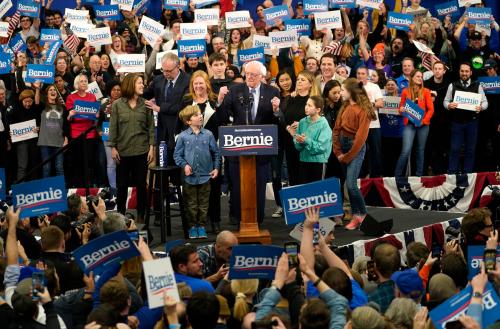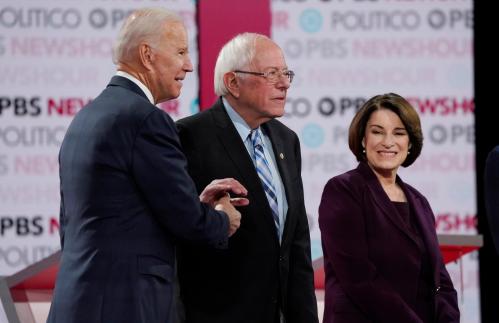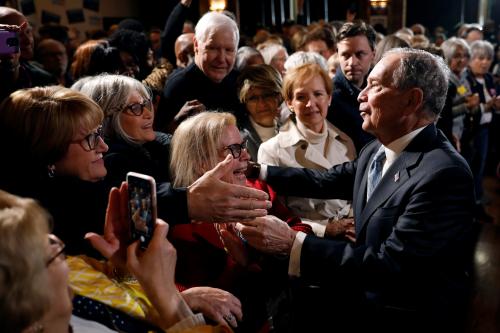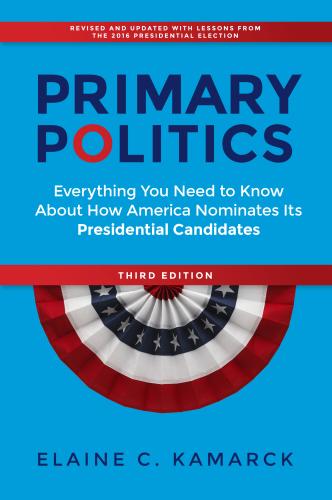Manchester, New Hampshire.
It was a grim week for Democrats. On Monday, the opening event of the nomination season, the Iowa Caucuses, suffered a meltdown and couldn’t report the results for days. On Tuesday, President Trump gave his State of the Union address and previewed a strong general election message based on the economy. On Wednesday, Iowa was still in chaos and the blame game had begun. On the same day the long-anticipated acquittal in Trump’s impeachment trial passed with only one Republican joining the Democrats on one count. On Thursday, the Iowa Democratic Party finally released all the caucus results while Trump took a victory lap and started firing (or transferring) administration officials who had testified against him.
On Friday night in the Sullivan Ice Arena at St. Anselm’s College in Manchester, New Hampshire, 1400 Democrats gathered to hear the eighth Democratic debate—hoping for some good news. Instead they were forced to consider that given the results in Iowa and the likely results in New Hampshire, the Democratic frontrunners were now a 77-year-old democratic socialist and a 38-year-old, small-town mayor.
Not surprisingly, three themes emerged: socialism, experience, and political strength.
George Stephanopoulos of ABC News pressed Senator Bernie Sanders and the others on whether a socialist could win. Sanders never answered the question although others did for him and they laid out the underlying vulnerability of a Sanders candidacy. Senator Amy Klobuchar hit the experience question hard—an attempt to take the centrist lane away from Mayor Pete Buttigieg. And the third theme was a version of electability: who could help Senate candidates win so that Democrats could also take over the Senate? Again, Sanders evaded the question while Vice President Biden and Klobuchar made the case for their candidacies.
For most Democrats, the uncomfortable reality of this race is that most of the candidates are flawed. Like the Goldilocks fairy tale, where the porridge is too hot or too cold and the chairs are too big or too little, none of the male candidates on the debate stage is “just right.”
Joe Biden can’t seem to break out of the past. Every answer is about something he did years or even decades ago. Last night he even said, “the past is not so bad.” Among Democrats that is undoubtedly a true statement but for the party that has to rely on a generation of younger voters, the past is just not enough. Andrew Yang and Tom Steyer, the two candidates with no public service record, can’t quite get into the mix. No one bothered to attack either of them and they are most likely to be off future debate stages. Steyer’s poor finish in Iowa should be a hint to others about the limits of money, and Andrew Yang seemed to face reality that his plan to give everyone $1000 was a flop when he opened with that and the audience laughed. Pete Buttigieg is undoubtedly the most talented performer on the stage. He is clear, crisp and smart. But his record is thin; he has run a city that has fewer people in it than there are civilians in the Department of Defense (785,000).[1]
The candidates that get closest to “just right” are the women. That may be why they have gotten the endorsements of the newspaper editorial boards that have sat down with them, most notably the New York Times. On age, they are “just right.” Klobuchar is 59 and Warren is a vigorous 70. On experience they are “just right.” Warren can brag about her successes in the Senate and has had the wisdom to declare herself a capitalist while embracing big left-of-center ideas. Klobuchar can also brag about her record and about her success in winning in Republican districts. Unlike Warren, Klobuchar had the good sense not to fall down the Medicare-for-All rabbit hole—a rookie mistake that has set Warren on a downward spiral.
This leaves the party with two choices: take another hard look at Klobuchar (she clearly had the best night of everyone on the stage last night and a stellar close), or hope that a 77-year-old billionaire and former mayor of New York can win enough delegates on Super Tuesday to put the party out of its misery.
[1] See: Office of the Under Secretary of Defense (Comptroller), National Defense Budget Estimates for FY2020, p.262.
A previous version of this post quoted the number of civilians working for DOD at 861,000.
The Brookings Institution is committed to quality, independence, and impact.
We are supported by a diverse array of funders. In line with our values and policies, each Brookings publication represents the sole views of its author(s).









Commentary
The Democratic race for the nomination: The women are “just right”
February 8, 2020